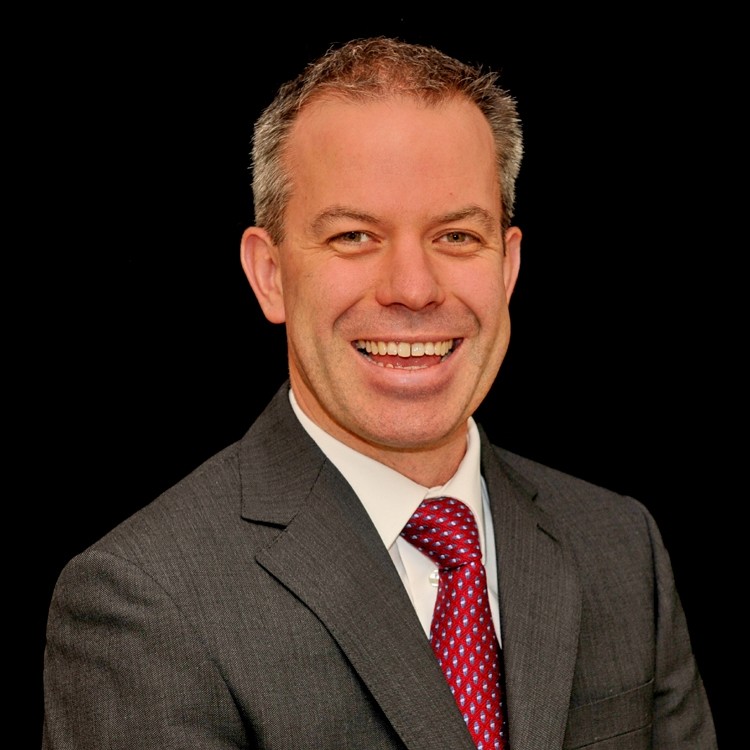EXCLUSIVE
Chiltern CEO reflects on 30 years in the CRO biz

On the advent of the CRO’s (contract research organisation) 30th anniversary last week, Kerkhof spoke exclusively to Outsourcing-Pharma about the changes in the industry since the firm launched, as well as what’s in store.
He touted improved regulations and standards in emerging regions as one of the biggest changes to come in the industry, as well as “growth in the use of personalised medicine techniques, streamlining clinical development design, and the rise in acceptance of risk-based monitoring approaches.”
The chief also foretold the rise of mid-tier organisations, saying: “Pharma companies outside the top 15 will increasingly look to mid-tier CROs to develop more flexible and responsive strategic relationships.”
But though much has changed over the past three decades, Kerhof says one thing has always, and will always, remain the key to outsourcing success: “Make clients happy by doing excellent work and keeping to commitments made.”
Here's what Kerkhof had to say during our Q&A session...
What are the biggest changes for contract research organisations over the last 30 years?
CROs have become more professional and globally orientated service organisations.
We have moved from single service, single project assignments to more complex client delivery platforms and strategic partnering relationships spread over many different geographies.
In addition, as a result of both market and regulatory dynamics, the cost and complexity of clinical trials has increased.
Pharma has met with both cost and revenue challenges and responded by increasing levels of outsourcing and by exploring ways to shift to a more variable cost base because it’s cheaper, often faster and provides pharma with greater flexibility.
So the challenges of drug development have increased but so too have the opportunities.
What do you think will be the next big changes for the industry in the near future?
As the world economy is seemingly in a constant state of change, the clinical development industry as a whole is under greater pressure to achieve even higher levels of value without higher costs.
This is already having an effect, and we are seeing exciting opportunities developing in the following three areas: growth in the use of personalised medicine techniques, streamlining clinical development design, and the rise in acceptance of risk-based monitoring approaches.
Here at Chiltern, we are very proud to say that we are working with our clients to help design studies where patients entering studies are optimally selected to achieve clinical benefit.
We are also streamlining objectives and using adaptive techniques to shift away from the standard paradigm of phase 1, then phase 2, then Phase 3 to phase 1/2 to phase 2/3.
And lastly, the Chiltern portfolio of clinical trials is nearly 100 per cent electronic.
We believe the combination of these three major changes will transform our industry.
How has the outsourcing industry been affected by the recent economic downturn, and what are the key things a CRO needs to do to survive the harsh landscape?
The pharmaceutical sector and the outsourcing sector have certainly been affected by the recent economic downturn.
Pharma companies have been under significant pressure to reduce costs and remodel their internal development organisations and biotechnology funding has been tight.
However, drug development activity appears to have rebounded and CRO revenues are now forecasted to grow by around 10 per cent per annum between 2012 and 2015 having been fairly flat over the past few years.
While I would not say it’s a harsh environment, it is a more focused, competitive landscape where provided you have a global and integrated operating platform then high quality, delivery and outstanding customer service remain essential to future success.
Chiltern’s philosophy remains the same; make clients happy by doing excellent work and keeping to commitments made.
How has the recent trend towards outsourcing in emerging markets affected Western-focused businesses such as Chiltern?
I think all Western-based businesses are focused on emerging markets – pharmaceutical companies and CROs alike.
For pharmaceutical companies, growth in demand for drugs in emerging markets is outpacing Western markets and for CROs it is increasingly important to acquire patients in these regions.
CROs are constantly driven to expand their footprint in order to improve our ability to recruit patients – a goal for the CRO sector that has not changed for 30 years!
Do you think that improved regulations and standards in those emerging regions could mean the death of Western outsourcing within the next 30 years?
While emerging markets are becoming a greater feature of the drug development landscape, they still only contribute less than 10 per cent of patients to trials.
I think the CRO sector has been good at scaling up in new regions over the past 30 years to meet customer demands as regulatory and operational needs require them to do so. Obviously improved regulations and standards in emerging regions are very welcome and are good for the industry.
My guess is that in 30 years CROs will be doing a third of their patient recruitment in today’s emerging markets and we - well maybe not me - will no doubt be discussing the new emerging regions for clinical development.
Western regions will remain in the mix and the parameters of particular trials will continue to require regions other than the emerging markets, for regulatory and marketing purposes.
What is the greatest problem faced by the contract research sector today, and how does that compare with the issues when Chiltern first opened its doors?
Broadly speaking, I think the challenges remain the same, although perhaps the benefits of outsourcing are better understood today.
It’s still important to find the best people; it’s still important to have deep therapeutic knowledge and efficient systems and processes; it’s still important to keep costs down and to be utterly focused on service delivery to your clients.
In addition, outsourcing is becoming more sophisticated and clients require flexible, innovative solutions to meet their specific internal challenges be that reducing their internal cost base and focusing solely on the science or reaching out for targeted support where needed.
The regulatory process is always a hot topic for the industry – if you could send all of the regulatory bodies one message, what would it be?
To the regulators we would say make it simple, keep it safe and strive for global consistency. To the industry, we would say - quality is key.
Without a high quality regulatory product, in line with the latest national and regional regulatory requirements, all other clinical trial services could be impacted by possible delays in start up and recruitment.
Getting the regulatory quality in place to begin with greatly increases the probability that the overall study will be a success, both in terms of delivery and client satisfaction.
It seems a popular view that the outsourcing industry is too fragmented. Firstly, do you agree with this, and secondly, do you think this is changing?
There has been a lot of CRO consolidation in the past few years and there is probably more to come for many of the reasons discussed above.
At each new trade conference I see more and more new CRO players entering the market offering new solutions and ideas so it’s still a very diverse landscape and for me this is a strong positive.
The top 6 CROs have a very broad service offering and have successfully focused on preferred provider relationships with top 15 pharma companies.
We firmly believe that the mid-tier CRO space will be the fastest growing segment as pharma companies outside the top 15 increasingly look to mid-tier CROs to develop more flexible and responsive strategic relationships.
Contract research organisations are often accused of exploiting trial participants. To what extent is this the truth, and what measures should be taken to address the issues?
First of all, Patients’ wellbeing is of utmost importance and they are top of our mind in our work.
We believe and recognise that, in today’s world, patients have far greater access to information about their disease and that in itself does mean they are better aware of treatment options available to them.
However this does help avoid the issue of patients participating in trials without realising what they are getting into.
Our industry needs to recognise these changes and actively engage patients and patient support groups in the trial process where feasible.














